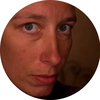"Learning is experience. Everything else is just information." Albert Einstein, Quantum Physicist
Open-mindedness and curiosity about the environment in which we experience it are fundamental characteristics that cultural education can trigger through the training of aesthetic perception. The examination of one's own environment and of social issues is essential and important for developing key competences, to understand, reflect on and help shape changes. The promotion of digital creativity and media literacy makes an important contribution to becoming part of the digital society and is also part of audience development in cultural institutions.Transnational educational projects can make the understanding of democracy and Europe perceptible thus contributing to a mature and cosmopolitan society. What challenges arise from this and what potential does cultural education hold for a sustainable society? In this track, renowned speakers will demonstrate how cultural education in cultural institutions can provide individual and societal benefits.
November 8, 2019, 10:00 am – 3:15 pm, hall 6
|
10:00 - 10:45 Uhr
Impuls
|

|
|
Was ist und wozu braucht man Kulturelle Bildung?
What is cultural education and why do we need it?
Prof. Dr. Eckart Liebau,
Chairman Council for Cultural Education e.V.
|
|
10:45 - 11:00 Uhr
|
|
|
Coffee break & networking
|
| 11:00 - 11:30 Uhr |

|
|
FENICE FOR EVERYONE audience development strategies through education (engl.)
Simonetta Bonato,
Teatro La Fenice, Education
|
| 11:30 - 12:00 Uhr |

|
|
Das dezentrale Museum als Museum der Zukunft?
The decentralized museum as a museum of the future?
Dr. Florence Thurmes,
SKD, Head of Program
|
|
|
12:00 - 13:00 Uhr
|
|
|
Lunch break
|
| 13:00 - 13:30 Uhr |

|
|
#in the bubble? - Konzeption, Umsetzung und Reichweite eines digitalen und partizipativen Konzertformats
#in the bubble? – conception, realization, and reach of a digital and participative concert format
Andreas Hempel,
Artistic Director Cölner Barockorchester
|
| 13:30 - 14:00 Uhr |

|
|
Art led and audience focused (engl.)
Alessandra Gariboldi,
Projektkoordinatorin Adeste+
Both literature and experience show how effective Audience Development depends on cultural organisations' committment and focus on impacts. Marketing, communication and mediation can't achieve longlasting impacts as they are working in silos and are asked to foster audience impacts by working as they used to. How might we help cultural organisations to develop an audience focus while keeping their artistic role? The speech will discuss learning from the EU funded Adeste+ project, that is prototyping and testing a blueprint to support cultural organisations facing the challenge of creating and nurturing new relationships with the people formerly known as audience.
|
|
14:00 - 14:15 Uhr
|
|
|
Coffee break & networking
|
| 14:15 - 14:45 Uhr |

|
|
Visitors are not a crowd (engl.)
Marta Graczyńska, National Museum Krakaw, Head of Education
Every year, museums present reports with record mumbers of visits. Each of these visitors has its own needs, desires, knowledge and life experience. The museum should learn about them, create a speace for dialogue and invite visitors to become participants of culture, not only its recipients.
|
| 15:45 - 14:45 Uhr |

|
|
WORK it OUT - Europa tanzt
WORK it OUT – Europa is dancing
Prof. Dr. Meinrad Maria Grewenig,
Präsident European Route of Industrial Heritage e.V. Chairman European Route of Industrial Heritage e.V.
|
|
15:15 - 15:30 Uhr
|
|
|
Coffee break & networking
|
| 15:30 - 17:00 Uhr |
|
|
FINAL DEBATE in hall 12
"Transform the European Cultural Market"
|
Subject to change without notice.
A change in tracks is possible during the breaks.
Back to overview
Download Congress program
Download program overview